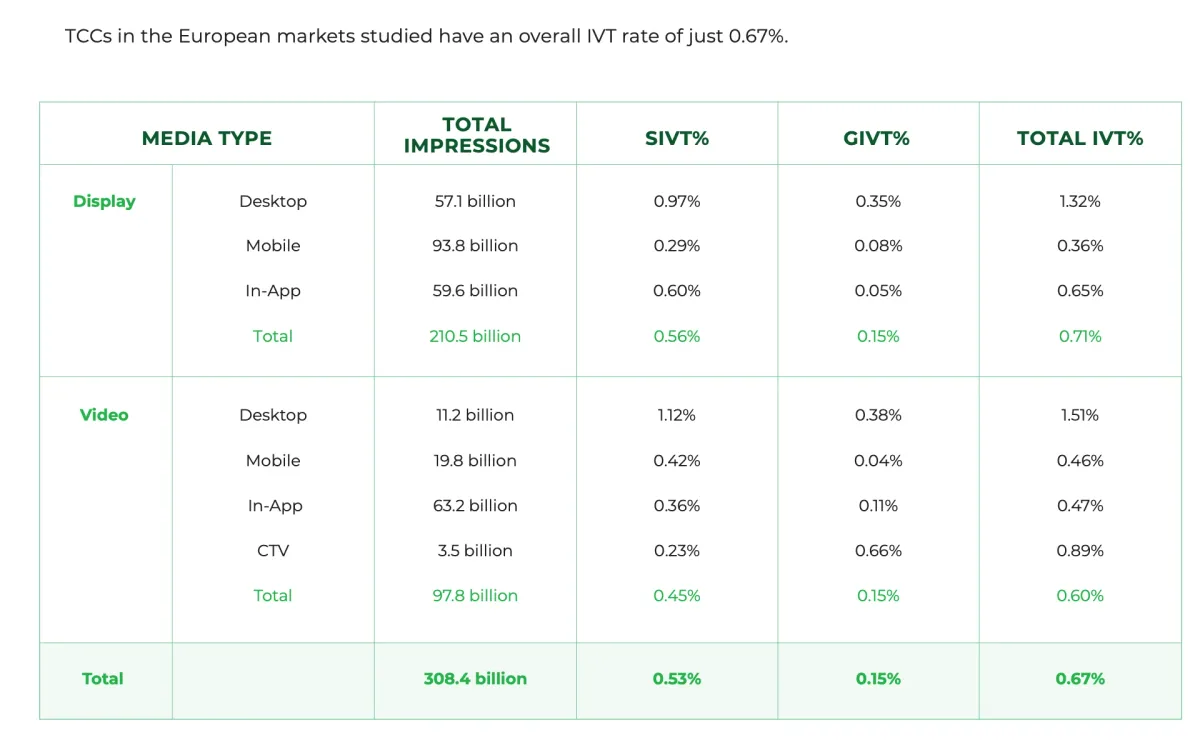
A new report by the Trustworthy Accountability Group (TAG) reveals significant progress in combating ad fraud within the European digital advertising market. The 2024 TAG European Fraud Benchmark Study, released today, found a 62% reduction in invalid traffic (IVT) within channels adhering to TAG's anti-fraud standards, compared to those that don't.
The study specifically focused on TAG Certified Channels (TCC), where at least three participants in the ad transaction (advertiser, publisher, or technology provider) have adopted TAG's Certified Against Fraud program. This program includes rigorous measures to identify and eliminate fraudulent activity throughout the digital advertising supply chain. The research found that the IVT rate within TCCs has been held below 1% for six consecutive years, demonstrating the effectiveness of these anti-fraud measures.
The study also highlights a positive trend in the adoption of TAG's anti-fraud certification. The volume of ad inventory available within TCCs has grown significantly, with the number of impressions measured in the study increasing by over 77 times in the past six years (from 4 billion to 308.4 billion in 2023). Jules Kendrick, Chief Growth Officer at TAG, attributes this growth to the increasing demand from advertisers for guaranteed low-fraud environments and the confidence TAG certification provides.
While the report emphasizes the success of TAG's anti-fraud efforts, it also identifies emerging concerns within the advertising industry. Insights from qualitative interviews with agency executives revealed several key themes:
- Focus on Other Industry Issues: With consistently low IVT rates within TCCs, agencies are shifting their focus towards addressing other challenges, such as wasted ad spend and a lack of transparency within the ad tech ecosystem. Executives suggest TAG's collaborative model for fighting fraud could be a valuable blueprint for tackling these broader issues.
- Defining Made-for-Advertising (MFA) Inventory: The study highlights confusion surrounding MFA inventory, a type of content specifically created to generate ad revenue. Executives emphasized the need for a clear industry definition of MFA to differentiate it from IVT (invalid traffic).
- Balancing Automation with Human Expertise: While automated tools have played a crucial role in reducing IVT, executives believe a "human touch" remains essential. Over-reliance on automation could lead to blind spots and unintended consequences.
The TAG study underscores the importance of robust anti-fraud measures in safeguarding the digital advertising landscape. The significant reduction in IVT within TAG Certified Channels demonstrates the effectiveness of these efforts. However, the report also highlights the need for continued vigilance and collaboration across the industry to address emerging challenges like wasted ad spend and a lack of transparency. By working together and establishing clear definitions around new concepts like MFA, the industry can ensure a healthy and sustainable digital advertising ecosystem.

